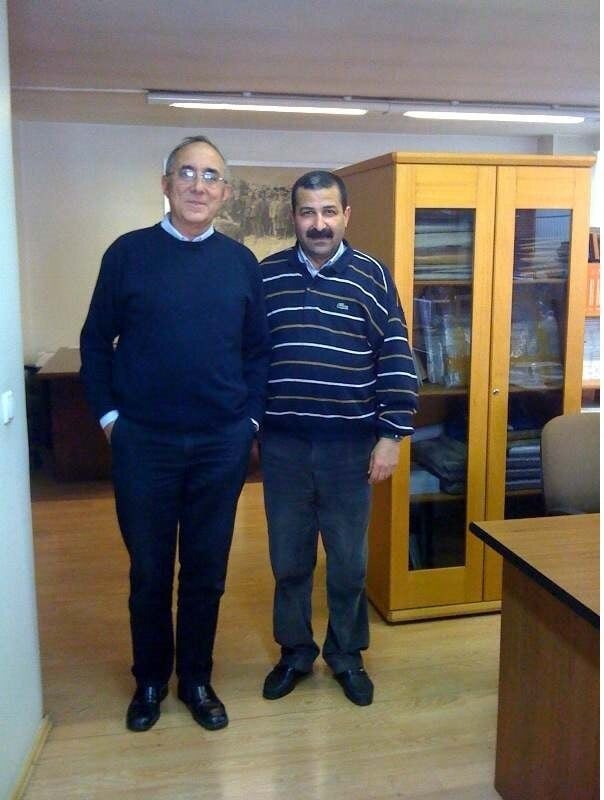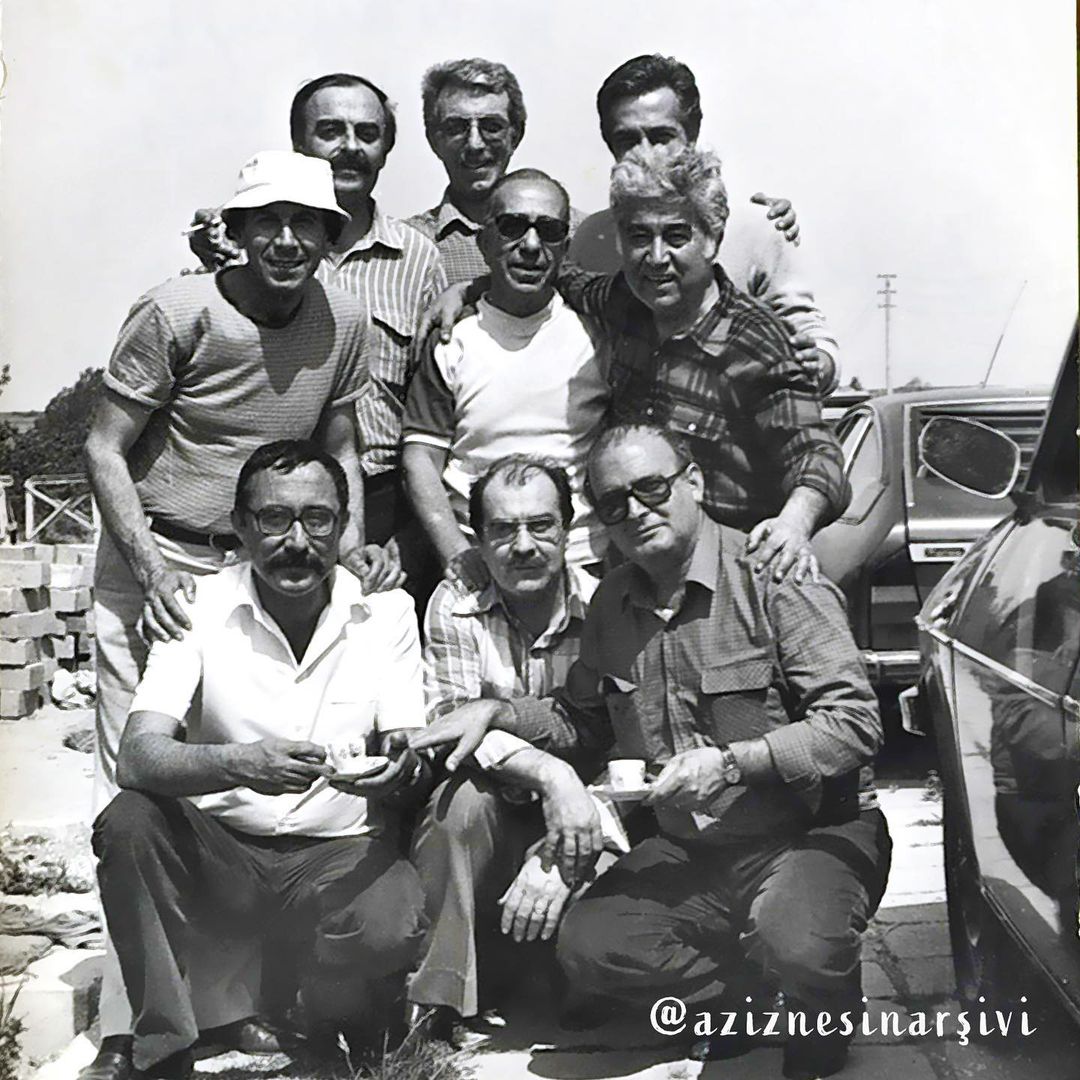
Behramoğlu: Apart from the Atatürk era, governments have supported sycophantic writers
As the Writers' Union, which defends freedom of expression and the rights of authors, celebrates half a century, former president Ataol Behramoğlu shared some of his thoughts with the Turkish edition of Yeniçag readers.
Nazım Hikmet arrived in Moscow in June 1951. He met with the USSR's Minister of State responsible for Radio and Television, requesting a weekly "Nazım Hikmet Hour" on the Turkish section of the radio's foreign broadcasts. However, the Soviet authorities, fearing the influence Nazım could have on the youth of Anatolia, denied this request. Unperturbed, Nazım volunteered as an editor for the Turkish broadcasts. Shortly after, Nazım met with leaders of the Writers' Union, which held a status even above that of the ministries in the USSR. In his honor, a banquet was organized, and it was decided that substantial royalties would be paid for his forthcoming books.
To quell his longing for Turkey, Nazım would sometimes travel to Baku or Tashkent, and at other times, he met with Turkish youth in Europe. However, during all these trips and meetings, he was shadowed by an intelligence colonel named F. Adilov. In 1962, the Azerbaijani young composer Arif Melikov's ballet "Legend of Love," based on Nazım’s play A Love Tale, premiered in Leningrad. At the gala night, Nazım, who regarded Melikov as a son, expressed his deep sorrow: “Arif, one day this ballet will be performed in Anatolia. You will see it, but I will not.” Nearly half a century later, when we spoke with Melikov, he said, "The sadness in his eyes is as vivid in my mind as it was yesterday."
After Nazım Hikmet passed away in Moscow on June 2, 1963, the writer with whom the Soviet Union had the most contact was Aziz Nesin. When the poet Konstantin Simonov suggested, “We can find microfilms of Nazım’s manuscripts in our archives and give them to you,” Nesin replied, “Our organization has only 3-5 members, and we survive on membership fees. What would we do with the microfilms?” He indicated that they could not take responsibility for the archival documents. Around this time, Nesin realized that it would not be possible to establish and sustain a Writers' Union like the one in the USSR, and a different idea began to form in his mind. As Cengiz Hüseyinov’s memories reveal, Nesin, unable to accept Nazım’s death, engaged in "Turkism and even Turanism" during his trips to Moscow, while his family in Turkey endured great hardship with every trip. Nesin expressed his views openly during a meeting with his Soviet writer colleagues in August 1965:
“The Azerbaijani language is a dialect of Turkish. The people are Azerbaijani, but the language is Turkish (like America and English). I liked Georgia and Armenia, but not Azerbaijan or Central Asia because people speak Russian among themselves there.” He noted that while knowing Russian was essential, one should not lose their own language. “If lovers speak different languages, that means their mother tongue is lost.” (Ekper's relative justifies: "But we studied in Moscow.") Nesin asked: “Why do people speak their own languages in Georgia and Armenia but not in Azerbaijan and Central Asia? The Soviet regime is the same there and here. So why is this happening? You need to think and correct this. The Soviet government is good; it creates every opportunity for literature, but it is hard for young people to forge their own path.”
Realizing that a Writers' Union modeled after the Soviet Writers' Union couldn’t be established in Turkey, Aziz Nesin, after extensive consultations with writers from different generations of Turkish literature, decided to establish the Writers' Syndicate to more effectively defend the rights of authors. The founding members of the Turkish Writers' Syndicate, established on February 4, 1974, were Yaşar Kemal, Aziz Nesin, Bekir Yıldız, Adalet Ağaoğlu, Orhon Murat Arıburnu, Adnan Özyalçıner, Turgut Uyar, Tomris Uyar, Leyla Erbil, Nihat Behram, and Ali Özgentürk.

After Yaşar Kemal’s one-year presidency, Aziz Nesin was elected as the Syndicate’s president in 1975, a position he held until 1989. Ataol Behramoğlu, who served as Secretary General during Nesin's presidency, was the Syndicate’s president for two terms between 1995 and 1999. On the 50th anniversary of the Turkish Writers' Syndicate, former Secretary General and former President Ataol Behramoğlu shared some reflections on the Syndicate’s half-century of struggle and its current state with Yeniçağ readers:
Behramoğlu: First of all, I must say this: In Turkey, except during the era of Mustafa Kemal Atatürk, governments have only supported authors and organizations that pandered to them. Mustafa Kemal Atatürk, on the other hand, truly valued writers and supported them without expecting anything in return.
Yeniçağ: Did Mustafa Kemal Atatürk support writers to have them praise him, or was it to strengthen the country's journey towards enlightenment?
Behramoğlu: Some writers were appointed as members of parliament during Mustafa Kemal Atatürk’s time, and they were given roles in various sectors of the state. However, not all of them were Kemalists or people who supported Mustafa Kemal. That never happened.
Yeniçağ: After appointing a writer to a position or ensuring their election as a member of parliament, did Mustafa Kemal expect them to write praises of him?
Behramoğlu: I don’t know of such a thing. Mustafa Kemal had intellectuals with whom he discussed and consulted. This is normal. But he didn’t have the idea of having himself glorified.
Yeniçağ: Your work with Aziz Nesin at the Writers' Syndicate…
Behramoğlu: Aziz Nesin was an amazing organizer, and I can say that the Writers' Syndicate was essentially his creation.

I’ve always been proud to be his Secretary General. It is an entirely voluntary organization that has survived on membership fees, with Yaşar Kemal, Asım Bezirci, Oktay Akbal, and Demirtaş Ceyhun serving as presidents at various times. Only during Fikri Sağlar’s tenure as Minister of Culture, after long correspondence, was the Syndicate granted an office. Writers can support the Syndicate with their royalties, but in Turkey, authors are selfish and individualistic, so the financial problems of the Writers' Syndicate never end.
Yeniçağ: Have you ever applied to state offices or ministries regarding the situation of any member of the Writers' Syndicate?
Behramoğlu: I don’t remember clearly. But it could be possible. We may have elderly, sick, or needy writers. What could be more natural than the Ministry of Culture helping a sick writer? The writer is not from another country but this country, and the government is also this country’s government. This should not be confused with personal interest. Supporting a writer in need is an entirely different matter. As for myself, I can say that I do not foresee applying anywhere for help, neither today nor in the future.
Undoubtedly, for any organization to survive for half a century after its founding, despite all difficulties, is considered significant not only in Turkey but worldwide. Especially if this organization has defended and continues to defend the rights of writers and freedom of thought and expression, society should be both proud and grateful, wishing success to its living members and remembering its deceased members with respect as the organization nears its centennial.













Leave a review